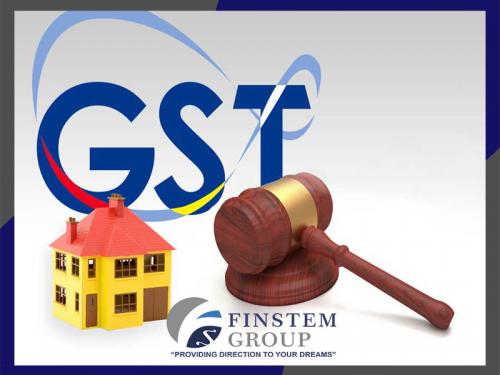GST: will it make a great affect on Real Estate?

The new tax
seeks to transform India with its “One Nation, One Market, One Tax” principle
by involving a host of indirect taxes and implementing a simpler tax on goods
and services. India is inspired by more than 160 nations, who have already
adopted a unified indirect tax structure. In Asia, GST during the 1980's and
1990's created an effective tax system, with the comparatively lower
administration and collection costs by the countries such as Indonesia,
Thailand, Singapore, and the Philippines who adopted this system. It has
enabled countries such as Singapore and Thailand to lower personal income
taxes, which has resulted in encouraging more foreign direct investment (FDI)
and stimulated the overall economic growth in the country. In this way,
Singapore has gained loads of profit by just implementing the GST taxation
system.
GST will leave a
great impact on everyone in the Real estate sector in many ways, whether you
are a buyer, seller, developer, intermediary, financier or an investor. Are you
a buyer and keen to know if the prices of residential real estate post-GST will
escalate or not? Are you a developer and worried about the designing and raw
material costs? Here’s a look at how the new tax will impact you and the real
estate sector.
GST is one
indirect and a single tax on goods and services. GST is the tax supply of
goods and services, right from the manufacturer to the consumer. Eventually, GST
is likely to be favorable for the real estate sector, with the warehousing
segment set to be the biggest beneficiary of the reform. It is expected to
ensure that doing business in India becomes tax neutral, irrespective of the
location. The investment decisions of warehousing operators will no longer be
governed by the comparative tax advantages of various states, thereby enabling
them to take informed decisions based on supply chain dynamics. As the construction
sector and the raw materials move towards a more systematic mode of operation,
the sector is likely to witness the inflow of more institutional funding and
formal sources of capital.
The GST Council
has categorized renting of immovable property (including a commercial,
industrial or residential complex for business or commerce, either wholly or
partly) as a supply of service. Whereas it has also included construction of a
complex building, civil structure or a part thereof, including a complex or
building intended for sale to a buyer, wholly or partly, as a supply of
service.
GST will bring
in a transparent and a corruption-free tax administration, removing the current
deficiencies of the taxes and leave behind a corruption- free India. It is a
positive step for the nation, to enhance its economy's flexibility and achieve
higher growth. With the scale of the real estate sector and Florizel Villas in Mysore, it can drive
economic growth across major business segments. If
the GST is executed well, it can help improve India’s economy and also make the
process of imposing indirect taxes more streamlined.
Comments